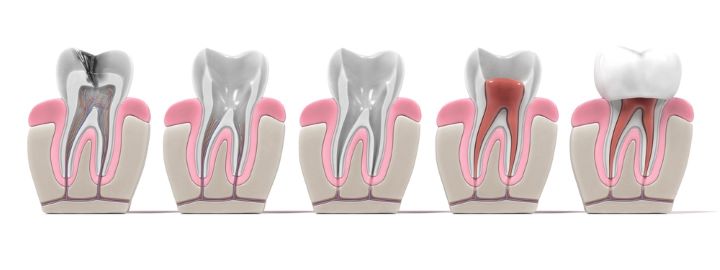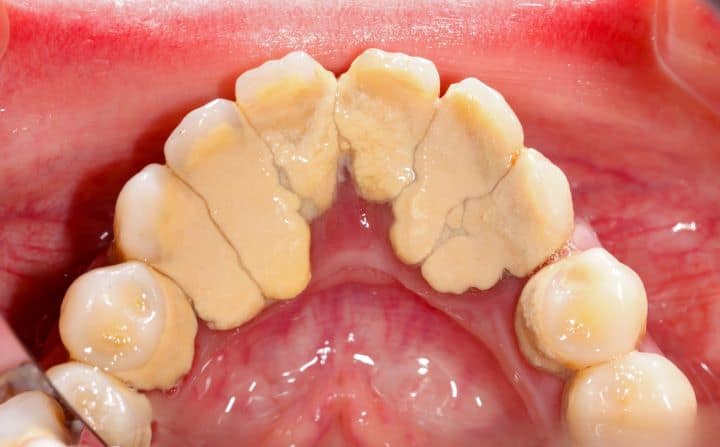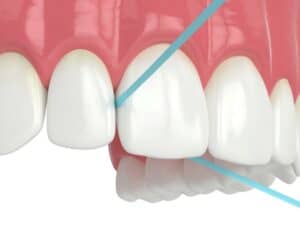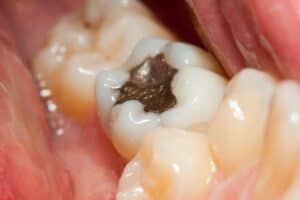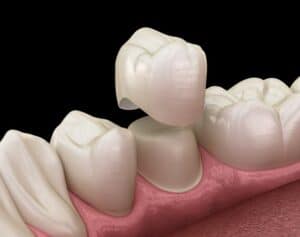Dental veneers are tooth-colored thin shells covering the front of your teeth to improve appearance and elegance.
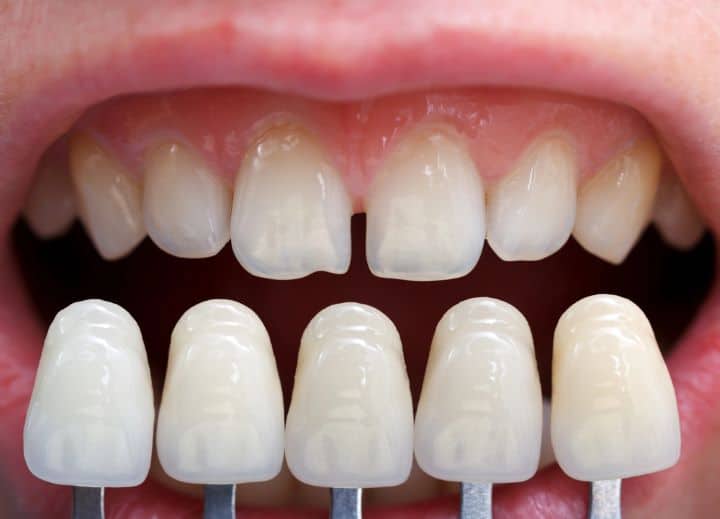
These shells are usually prepared from the porcelain or composite resin attached to the teeth to make a smile more appealing and natural. In many cosmetic dental problems, veneers arise as a very versatile solution due to their durability and long-lasting elegance to the appearance of your teeth.
Dental veneers are custom-made for each patient’s distinctive dentition. They are made by meticulous design according to shape, size, and color.
With this individualized approach, they match perfectly with every patient’s tooth and improve their overall appearance by making them look harmonious.
Common Dental Issues Veneers Can Address:
Veneers are a versatile cosmetic dentistry alternative that can resolve many dental problems, specifically cosmetic ones.
Dental veneers can effectively correct such common issues as discoloration, chipped or cracked teeth, irregularly shaped teeth, and slight misalignments. Veneers can close minor gaps between teeth, providing a less invasive option than other orthodontic treatments.
Benefits of Dental Veneers:
Dental veneers ensure significant improvement in the overall appearance of teeth with minimal tooth tissue reduction. Unlike some other cosmetic procedures, veneers save much of the natural tooth.
They also ensure long-term brighter and whiter smiles due to their resistance to stains and discolorations.
Additionally, the application of veneers is a relatively rapid and simple procedure, making it quite appealing to those who want instant and permanent cosmetic improvement.
Different Types of Veneers
Dental veneers have become a trendy option in cosmetic dentistry for people who want to improve their smile.
To make wise choices according to your requirements, having a good knowledge of different types of dental veneers is essential. Here is a breakdown of the different types:
Porcelain Veneers:
Porcelain veneers are one of the most popular and widely used options.
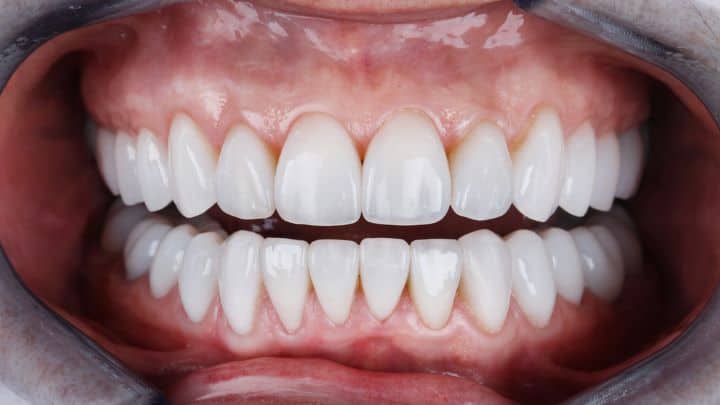
These veneers are usually made of thin shells of porcelain designed according to your teeth’s natural shape and color. Porcelain veneers are strong, resistant to stains, and shine like natural teeth. They are good options for discolorations, slight misalignments, and chipped teeth.
Composite Veneers:
Composite veneers are made of a tooth-colored resin material directly applied and shaped onto the teeth to improve their appearance. These veneers are cheaper than porcelain ones but may be less resistant to stains and more durable. Composite veneers are an excellent choice for those looking forward to affordable enhancement.
Removable Veneers:
Unlike standard veneers, removable ones are not held permanently in place. They are easy to remove and reattach by themselves and are called pop-on veneers.
Although they are temporary cosmetic improvements in the appearance of your smile, they may not be as personalized or long-lasting as other types of veneers. Removable veneers may be convenient for those who want to reverse a cosmetic enhancement.
No-prep Veneers:
They are called no-prep veneers because they do not require much tooth preparation before application. This type of veneer is skinny and typically eliminates the need to remove enamel, thus preserving a more natural tooth structure.
No-prep veneers are conservative because they offer quicker and less invasive smile enhancement. Nevertheless, their use is sometimes limited and cannot be used throughout a lifetime like standard veneers.
The Process of Getting Dental Veneers
Dental veneers can improve your smile, answering those who want bright and perfect teeth.
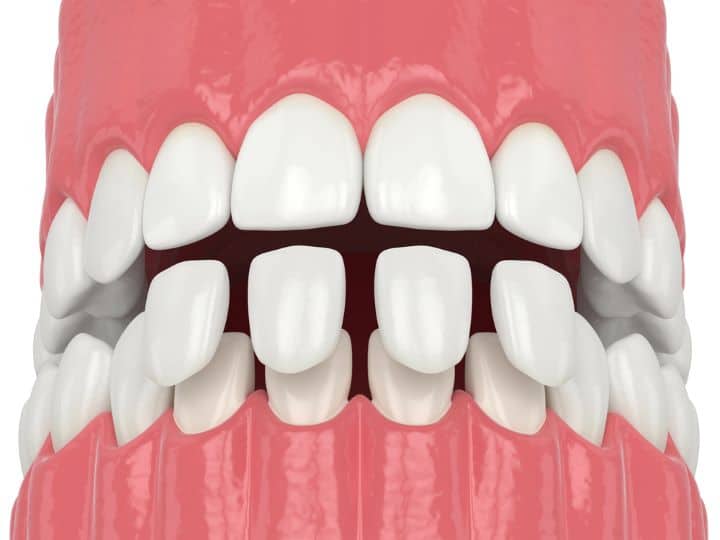
Getting dental veneers is a multi-step process to ensure that the outcome of appearance and function becomes customized and close to the original. Here are the steps you go through while getting dental veneers.
Initial Consultation with a Dentist:
The dental veneer journey starts with a dental consultation from a competent dentist. This is an essential stage because, at this point, the dentist will consider a patient’s oral health history and payment before deciding whether or not veneers are best suited. This Consultation provides the basis for a personalized treatment plan, considering every individual’s unique dental needs.
Prepping the Teeth for Veneers:
Once it is decided to place veneers, the dentist prepares teeth by grinding off a small portion of the enamel. This ensures that the veneers fit well enough to blend with natural teeth. The enamel removed is minor and does not affect the overall well-being of teeth in terms of structure.
Taking impressions of the teeth:
While crafting veneers, precision is essential so that they harmonize with the patient’s natural teeth. After teeth are prepared, dentists take impressions to show precise outlines regarding the size obtained from them. These can be used as a template for custom-designed veneers that fit snugly and comfortably with a good appearance.
Fitting Temporary Veneers:
Permanent veneers are carefully made in a dental laboratory; temporary ones are applied to the prepared teeth to preserve them. These temporaries show how the final result will be and let patients test their new smile, both in terms of its looks and working.
Bonding the Permanent Veneers
The final step is cementing the custom-made permanent veneers onto the prepared teeth.
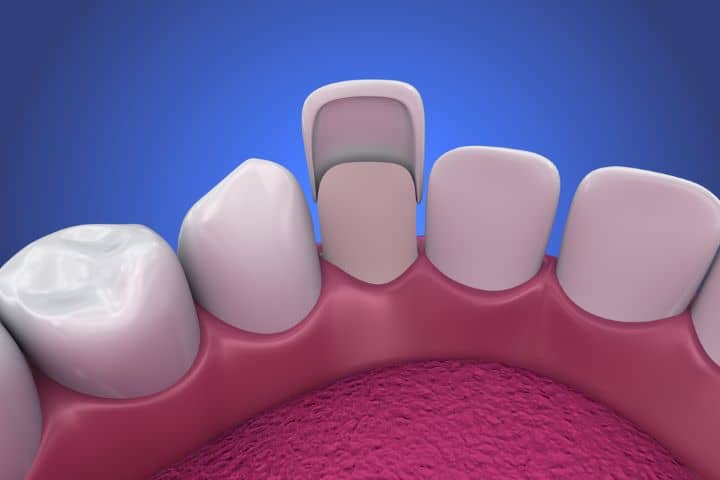
The dentist carefully places each veneer to ensure perfect alignment, and the resulting appearance resembles natural teeth. These are permanently affixed using a specialized adhesive that provides a secure bond that stands up to everyday activities while producing dazzling smiles for the life of these veneers.
Pros and Cons of Dental Veneers
Advantages of Dental Veneers:
Dental veneers have many advantages over other dental procedures, such as crowning and teeth whitening. Dental Veneers have light-reflecting properties similar to your natural tooth enamel. Therefore, they give the illusion of a gorgeous, genuine smile. Porcelain veneers offer more satisfactory results than composite resin veneers in this regard.
Dental veneers are highly versatile, meaning they can cover up tooth cracks, stains, chips, or any other cosmetic issues and restore your beautiful natural smile. Dental veneers are made so that they maximally match the color of your natural teeth.
You can get veneers customized according to your personal needs. They can be according to your teeth’ color, size, and shape. Benefits: A gorgeous smile right away!
Moreover, you can choose which material you want: Porcelain or composite resin. Although both are great, porcelain veneers offer more durability, stain resistance, and a natural-looking smile than composite resin veneers.
On the other hand, composite resin veneers are more economical than porcelain ones. Both Porcelain and composite resin veneers have stain-resistant properties. Also, smoking, coffee, tea, and other beverage stains can be easily brushed off your dental veneers.
Last but not least, dental veneers are less expensive than other dental restoration procedures, such as crowns. They are also highly durable, giving you a bright, healthy smile for extended periods.
Getting a dental veneer is a quick procedure. However, you may need to visit your dentist twice or thrice for your veneer’s fixation. Dental veneers restore the exquisite beauty of your smile and strengthen and support your cracked or crooked teeth. They offer strength quite comparable to your natural teeth.
Potential Drawbacks of Dental Veneers:
Getting dental veneers involves the removal of tooth enamel, which, once lost, cannot be restored, and then applying the veneers over teeth.
Hence, most dental veneers are your permanent choice, and you must think this through before opting for this procedure because there is no going back.
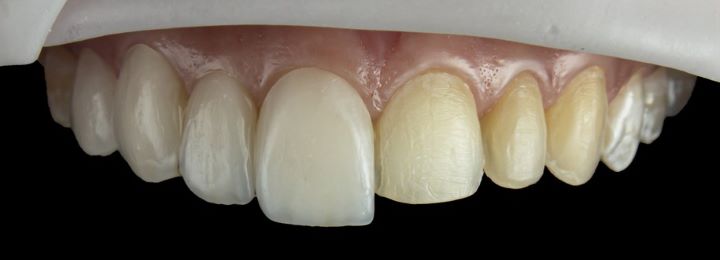
Due to the removal of tooth enamel, the underlying dentin is exposed. This leads to temporary sensitivity to hot, cold, or sweet foods.
Furthermore, if your dental veneers get chips and cracks over time, they cannot be repaired. You will need to get new veneers.
Therefore, you need to be extra cautious to enjoy your dental veneers’ long-term and cost-effective benefits. Dental veneers are liable to damage by teeth grinding and clenching.
Also, tooth grinding during the non-REM phase of their sleep cycle can damage your dental veneers. Therefore, you may need to wear a mouthguard before sleeping as per your dentist’s recommendation.
Comparison with other cosmetic Dental Procedures:
- Dental Veneers vs Dental Crowns: Dental veneers cover only the front of your tooth, while dental crowns cover the entire tooth. Hence, crowns provide more protection and strength but also need more enamel removal at the same time. If your teeth are more damaged, your doctor may use dental crowns instead of veneers.
- Dental veneers vs Dental Bonding: Although both can be used for chipped or cracked teeth, their durability differs. Dental bonding must be repeated every 4-5 years, while dental veneers may last up to 15-20 years.
- Dental veneers vs Dental whitening: You may opt for teeth whitening to white your teeth aesthetically. However, some stains are more stubborn than others and may need to be more amenable to removal by teeth whitening procedures. Here, dental veneers come in handy and restore your glistening, beautiful smile.
- Dental veneers vs Orthodontic treatments: Although dental veneers can correct minor teeth misalignments, significant issues like severely crooked teeth may need orthodontic procedures like braces. It all depends upon your specific dental condition.
Cost of Dental Veneers
Factors influencing the cost of Veneers:
The cost variability depends significantly upon your dentist’s quality of material and expertise. Moreover, factors such as dental damage, cracks, fractures, and the customization options also contribute to the overall price.
Average Dental Veneers Cost:
Although dental veneers vary greatly among dental clinics, porcelain veneers are relatively more expensive, ranging from $900 to $2500 per tooth. The composite resin veneers are economical and they average $400 to $1500 per tooth.
Insurance coverage and financing options:
Major insurance companies and health systems like the NHS or Medicaid do not cover cosmetic procedures, including dental veneers. Therefore, you will have to pay for your veneers yourself.
Caring for Dental Veneers
Your dental veneers can last for a more extended period (up to 20 years) if you take dedicated care of your dental veneers.
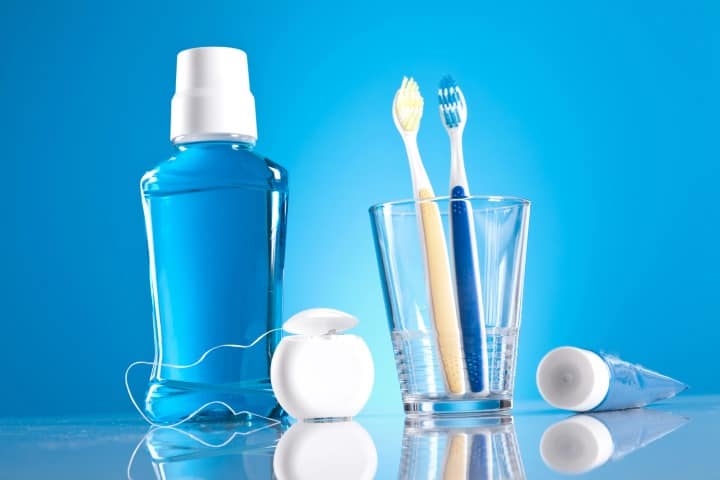
Good oral hygiene, using soft-bristled toothbrushes and fluoridated toothpaste, and opting for an antibacterial mouthwash to avoid gum diseases contribute to a better life of dental veneers.
It is also recommended that you avoid smoking, limit your alcohol consumption, and limit your consumption of stains in food products like tea, coffee, and other beverages.
Daily oral hygiene practices for Veneers:
Maintaining good oral hygiene is essential for your veneers. If you don’t practice oral hygiene measures, your veneers will lose their shine over time and may also get prone to damage in the form of chips and cracks.
Therefore, you must pay close attention to your oral hygiene measures, such as brushing your teeth twice daily, regularly flossing to remove residual food particles, and using regular mouthwash.
Foods and habits to avoid with Veneers:
Limit your use of coffee, tea, soft drinks, and other similar foods, as they tend to leave stains on your dental veneers. You are also advised to quit smoking and reduce alcohol consumption.
Hard foods should be avoided, as biting into hard foods such as hard candies or nuts can damage your dental veneers. Moreover, avoid grinding and clenching your teeth and chewing gums, toffees, and other sticky chewy foods.
Although sound-quality veneers are durable, they are vulnerable to damage. Therefore, you should visit your dentist more often to maintain the health of your dental veneers.
Proposed guidelines suggest dental checkups every six months, but if you notice any issue with your veneers, promptly seek dentist advice.
Choosing a Dentist for Dental Veneers
Getting your dental veneers is a permanent decision; there is no turning back if things go south.
Therefore, choose your dentist very carefully. You can seek recommendations from your friends, family, and colleagues.
Qualifications and Experience to look for in a Dentist:
Your dentist must hold a dentistry degree from a reputable institute.

Also, diplomas or degrees in cosmetic dentistry may work as an icing on the cake. They should have a satisfactory experience in the field.
Questions to ask during the Consultation:
Ask about your dentist’s work experience and degree/diplomas. Ask about the latest developments in dental veneers and whether your dentist uses these advancements.
You must also Inquire about procedure details, its complications, and what to expect. You can also ask for their portfolio during your Consultation.
Reviewing before and after photos and patient testimonials:
Another highly beneficial technique is to examine the before and after pictures of patients and their testimonials, which will give you a deeper insight into your dentist’s expertise. You can check the views and experiences of other people online on your dentist’s website or other platforms.
Conclusion:
To conclude, getting dental veneers has merits and considerations for whatever reason.
Dental veneers come in different forms, such as porcelain, composite, removable, or no-prep, and offer a versatile remedy for a range of cosmetic dental issues, providing a quick and lasting enhancement to one’s smile.
Natural aesthetics, versatility, customization, and stain resistance are significant advantages of dental veneers.
Although rare, the potential drawbacks, such as permanence, sensitivity, and cost, necessitate careful consideration.
The overall success of your dental veneer procedure is influenced by good decision-making through a selection of proper veneer material and an expert cosmetic dentist guided by their qualifications, work experience, and patient feedback.
Also, adequate care of your dental veneers by good oral hygiene practices and lifestyle adjustments ensures the longevity of your investment.

